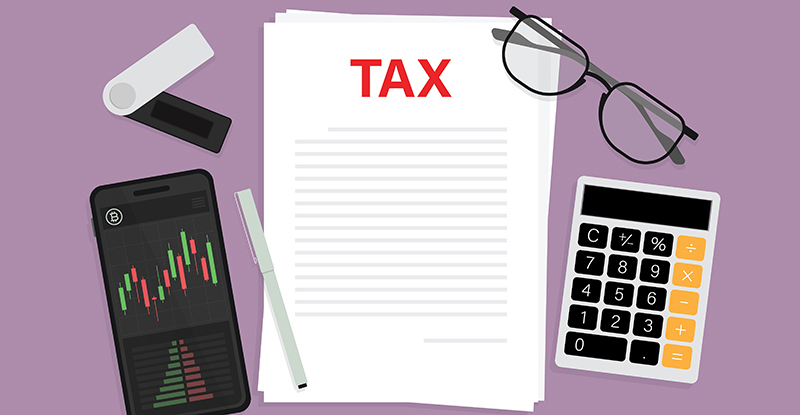
Cryptocurrency doesn’t fit neatly into CRA’s rules. But the question remains whether the government should change the Income Tax Act to accommodate it or continue to place the reporting burden on crypto-asset service providers.
Canadians must report their income from all sources both inside and outside of Canada. The federal income tax system has information reporting systems imposed on the payer (i.e. T4) to ensure taxpayer compliance, but these reporting systems have limited or no functionality outside of Canadian borders.
To deal with this situation, specified foreign property (SFP) rules—subject to non-filing penalties—were introduced in 1996 to impose a self-reporting requirement on Canadian resident taxpayers to disclose foreign property. As Paul Martin, then finance minister, said when the government introduced the draft rules, “These reporting requirements will give Revenue Canada more ability to scrutinize offshore investments held by Canadians and to ensure the complete reporting of income.”
Thirteen years later, a computer programmer under the pseudonym Satoshi Nakamoto, introduced the concept of cryptocurrency–Bitcoin. As the years went by and mainstream adoption of Bitcoin and other cryptocurrencies evolved, some investors started to ask: is cryptocurrency a Canadian or foreign asset?
For those with a keen technical understanding of distributed ledger technology (DLT), the correct answer is, both. A unit of crypto is not necessarily situated in any particular country, which makes it that much more difficult for Canadian taxpayers and accounting professionals to determine if it is a domestic or foreign asset for tax purposes. Cryptocurrency owners may believe their holdings reside in Canada because the digital information is typically accessed while in Canada through a digital wallet on their phones, thumb drives, laptops, or online trading platforms.
For the Canada Revenue Agency (CRA) though, which wants to ensure Canadians aren't hiding their cryptocurrency assets outside of Canada, the tricky question is figuring out when a unit of crypto should be considered a foreign asset, and thus subject to reporting by taxpayers as SFP.
The problem is that the SFP rules in the Income Tax Act weren’t designed with cryptocurrency and DLT in mind, leaving CRA's guidance akin to squeezing a square peg into a round hole.
Almost a decade ago, CRA attempted to answer the question: is cryptocurrency SFP? CRA concluded that cryptocurrency was considered “funds or intangible property.” If those funds or intangible property were “situated, deposited or held outside of Canada,” then they should be classified as specified foreign property and thus subject to reporting. CRA’s attempt to answer the question stopped short of providing guidance on the actual location where cryptocurrency is situated, deposited or held.
Knowing that CRA cannot actually determine the true location of cryptocurrency, CPA Canada rephrased the question to CRA in its 2023 document, CPA questions to CRA. "Can CRA provide examples of cryptocurrency that is situated, deposited or held outside Canada for classification as specified foreign property?"
The rephrasing of the question, albeit subtle, allowed CRA more latitude to provide guidance. In this document, CRA states, "[I]t is our view that, where crypto trading platforms (CTP) are resident in Canada and comply with Canadian regulations, cryptocurrency held through such CTPs for the benefit of Canadian clients will typically not be considered as `situated, deposited or held' outside Canada.”
Although this guidance is not definitive, Canadian taxpayers now have some assurance that cryptocurrency assets held in a Canadian resident CTP are not reportable as specified foreign property. For anyone else who holds cryptocurrency outside of a Canadian CTP, the lack of clarity around foreign reporting remains. The bottom line is that the Department of Finance hasn't created anything new, and CRA has just taken the existing legislation and made one aspect of holding cryptocurrency squeeze into the existing rules as best it could.
All of which begs another question: should Parliament update the Income Tax Act to directly address self-reporting of cryptocurrency assets?
Canada is not the only country that has been slow to respond. The U.S. has lagged with modernizing its laws to address the reporting of cryptocurrency by its taxpayers. The Financial Crimes Enforcement Network (FinCen) has not updated its Notice 2020-2, which states that a foreign account holding virtual currency is not reportable on the Foreign Bank and Financial Accounts (FBAR), even though the notice states amendments are intended.
The IRS has also never come out with an official position regarding cryptocurrency and reporting under the Foreign Account Tax Compliance Act. Like Canada, the U.S. seems more preoccupied with making crypto exchanges and custodians report cryptocurrency transactions than individual taxpayers. Unlike CRA though, the IRS did introduce, starting in 2019, a question on the 1040 inquiring about cryptocurrency transactions. Starting in 2024, U.S. persons engaged in a trade or business receiving $10,000 or more in crypto payments will have mandatory reporting.
Meanwhile, the Organisation of Economic Co-operation and Development (OECD) in November, 2022, proposed the Crypto-Asset Reporting Framework (CARF) as an amendment to its Common Reporting Standard, which has been adopted by more than 100 countries, including the G20. Full implementation of CARF is ongoing with Canada, U.S., and over 30 other countries intending to start exchanging information by 2027.
The principle behind the OECD's framework is to impose reporting obligations on crypto-asset service providers to increase transparency, and thus allow tax administrators to have better visibility on crypto transactions and income.
The European Union has recently moved to the adoption of "DAC8," which closely resembles aspects of the OECD’s CARF, establishing an information exchange platform that will provide national tax administrators with more visibility on activity taking place by crypto-asset service providers.
As we look around the international community, the focus by tax authorities on cryptocurrency reporting is falling not on taxpayers, but rather on crypto-asset service providers.
With Canada and a significant number of other countries adopting CARF to gather and share cryptocurrency information received directly from crypto-asset service providers, is self-reporting of cryptocurrency assets by Canadian taxpayers necessary, either as foreign or Canadian?
As Mark Greenberg, managing director for Canada of the crypto platform Kraken, pointed out in an August 2023, interview with NASDAQ, about one in four Canadians now own some form of crypto and over 30% plan to invest in crypto assets this year. Sooner or later, they'll all need to know whether their crypto holdings are reportable as foreign property or not.
John Oakey, a CPA in Ontario, is vice-president of taxation at CPA Canada.
Originally published by CPA Canada's news site.



